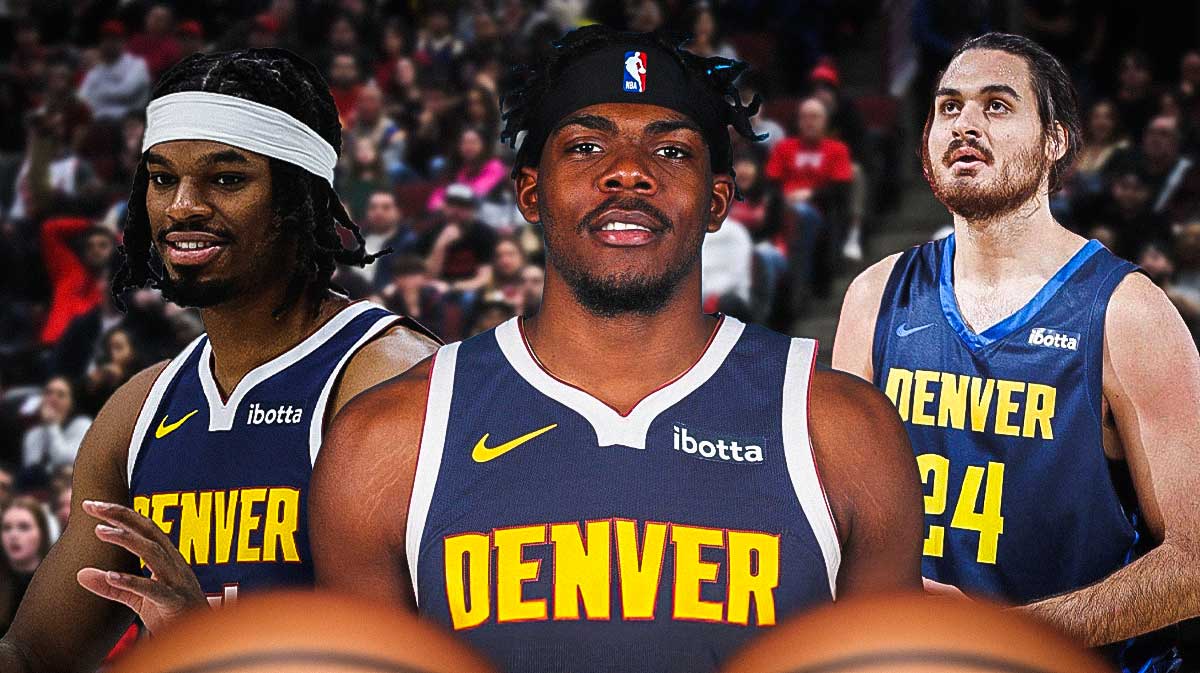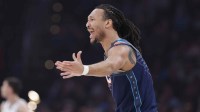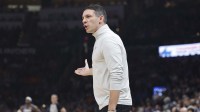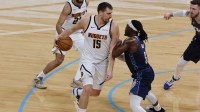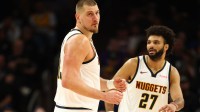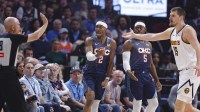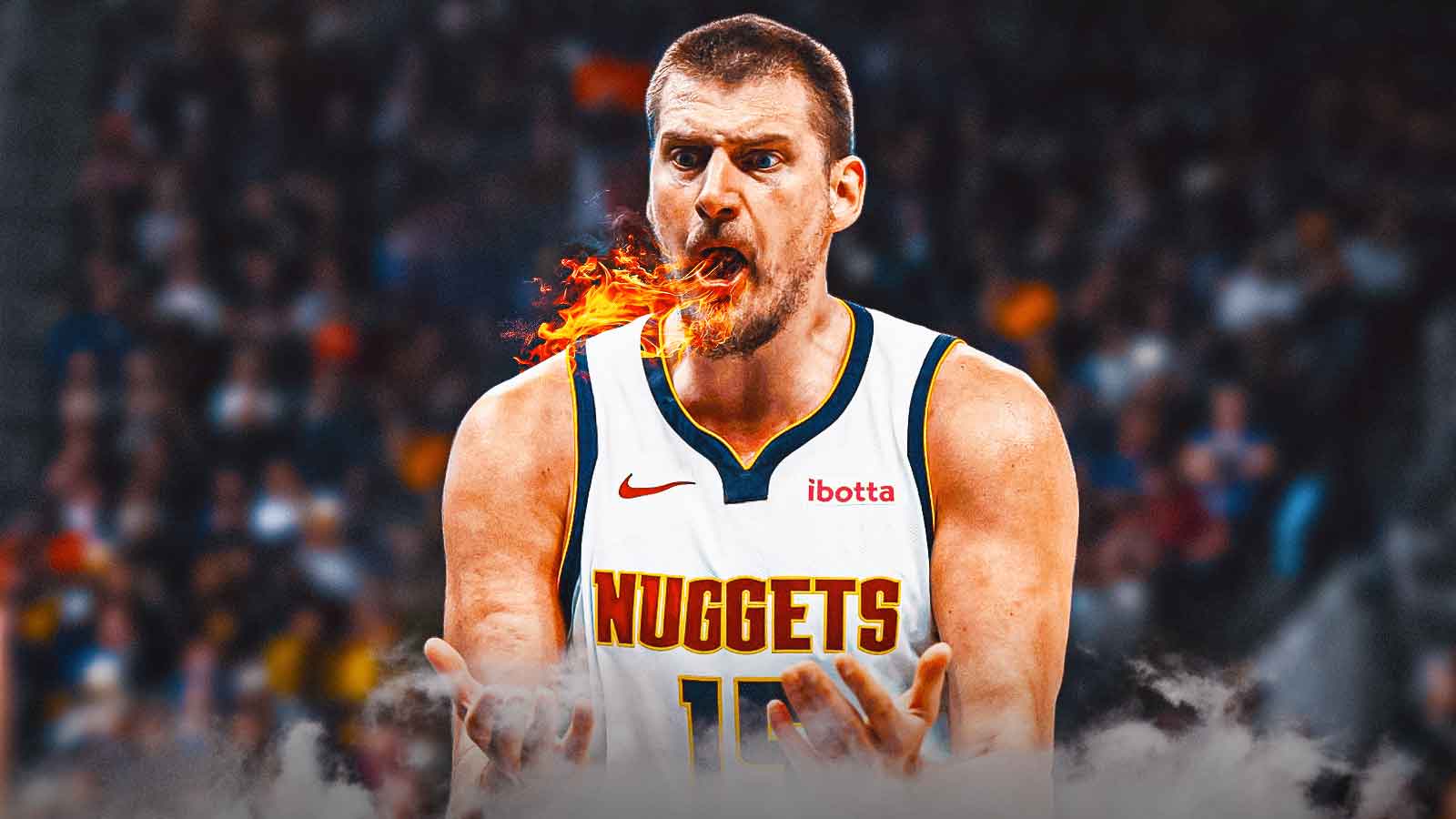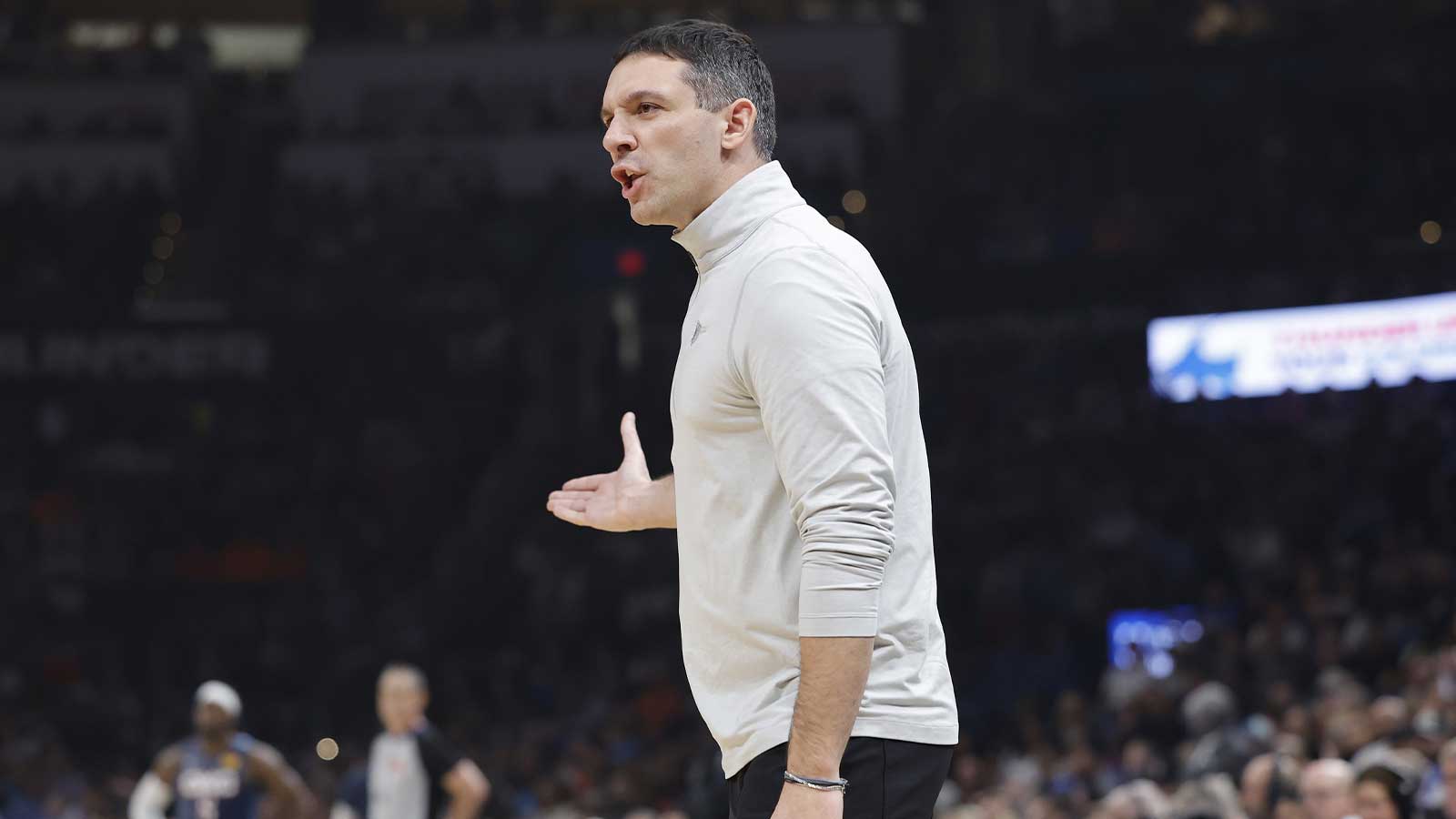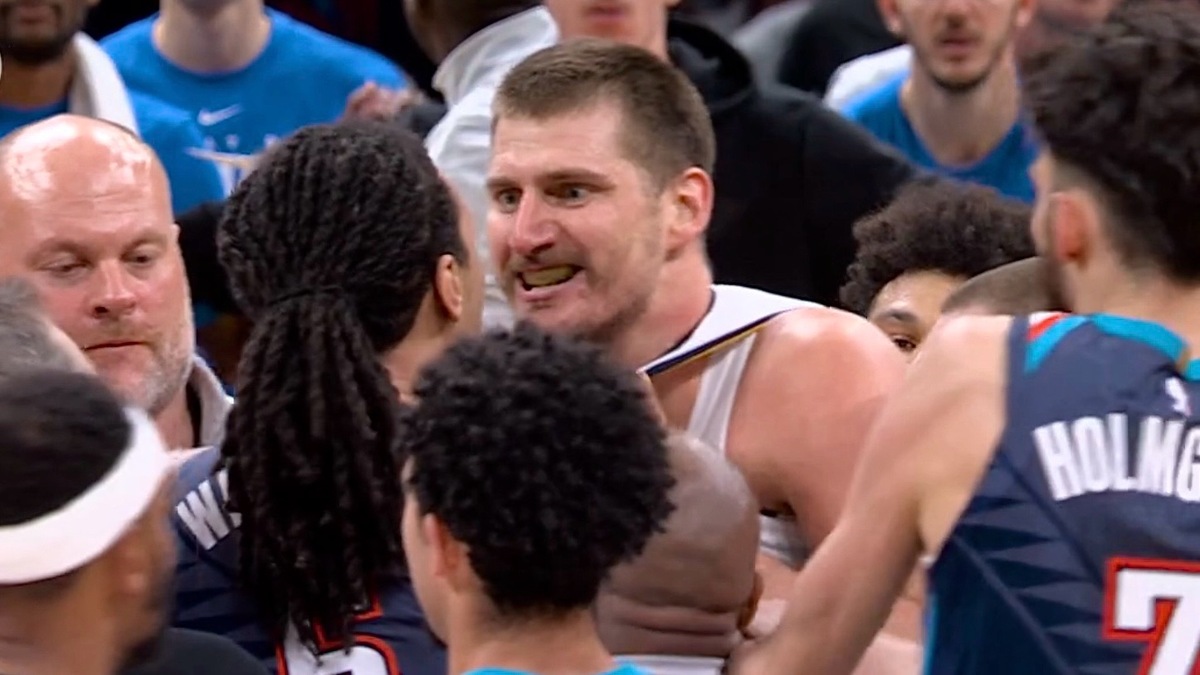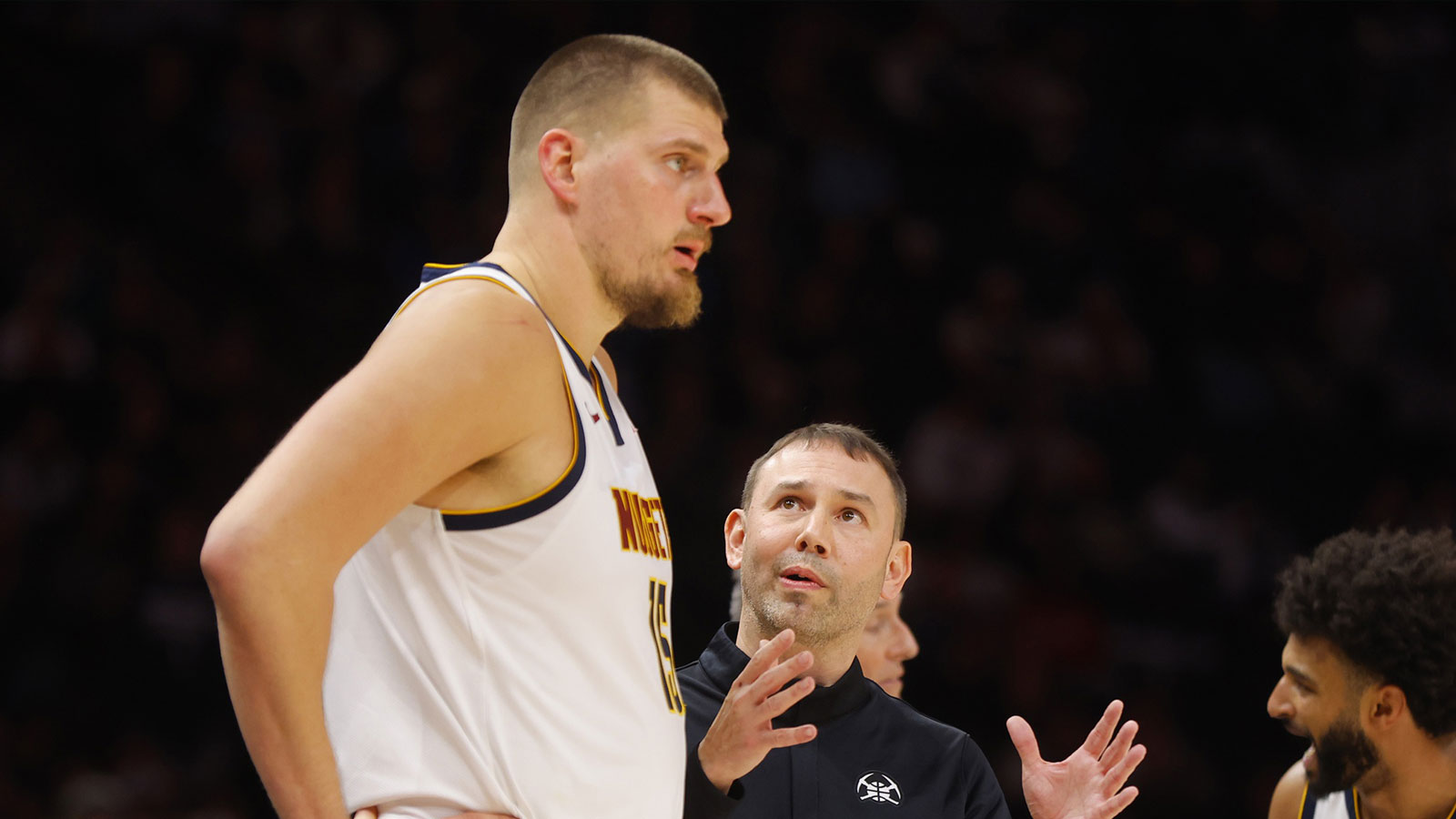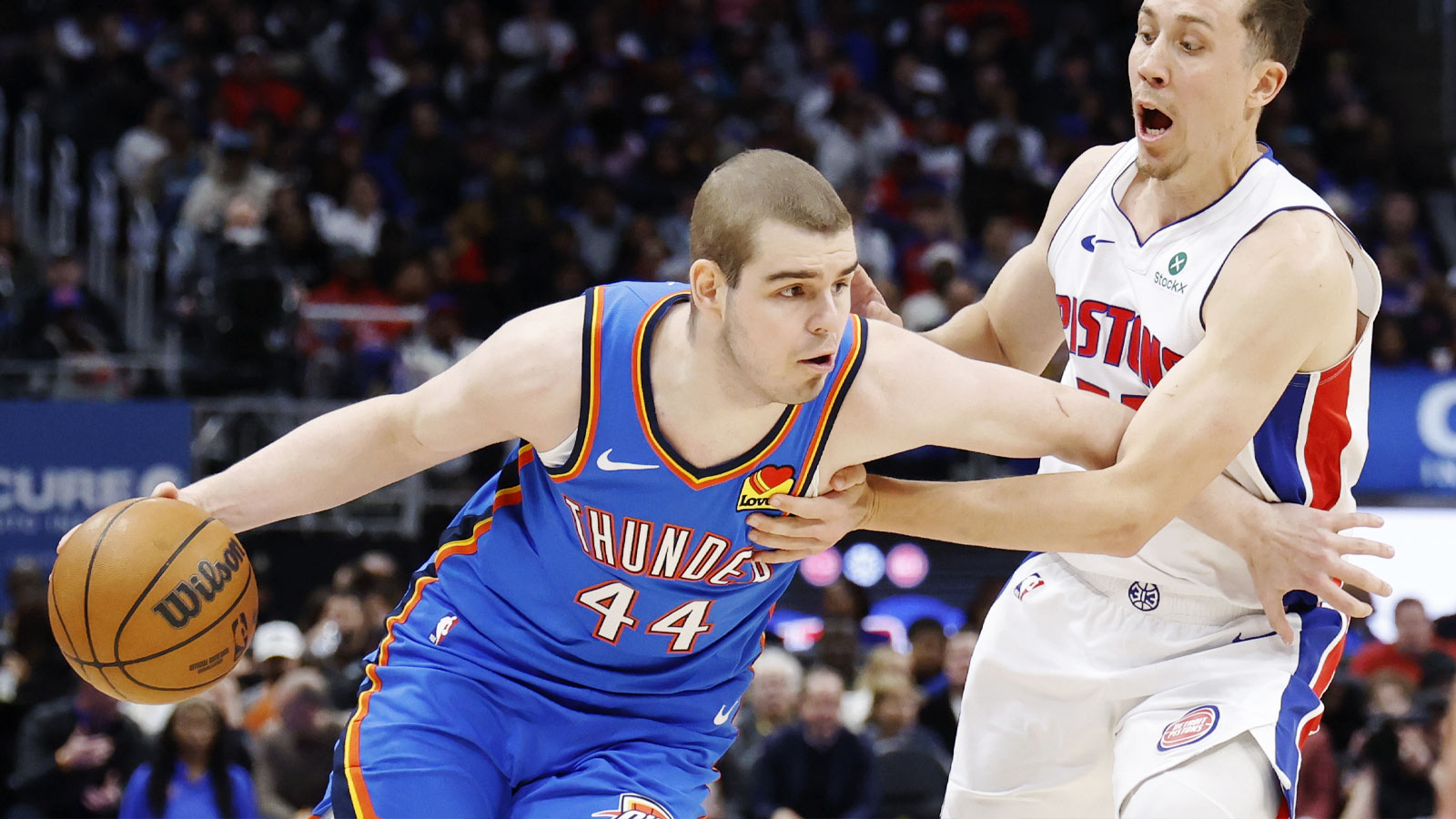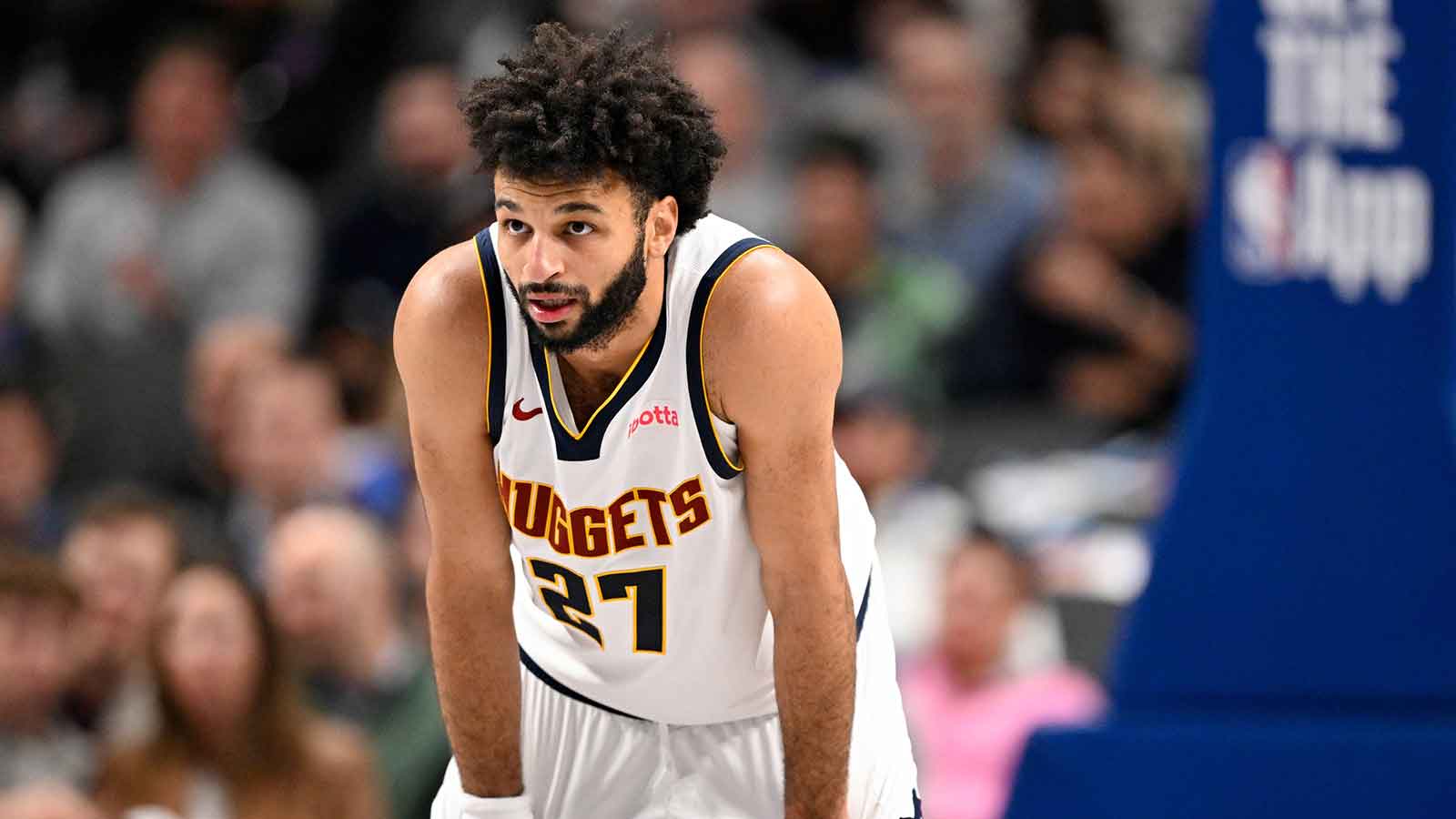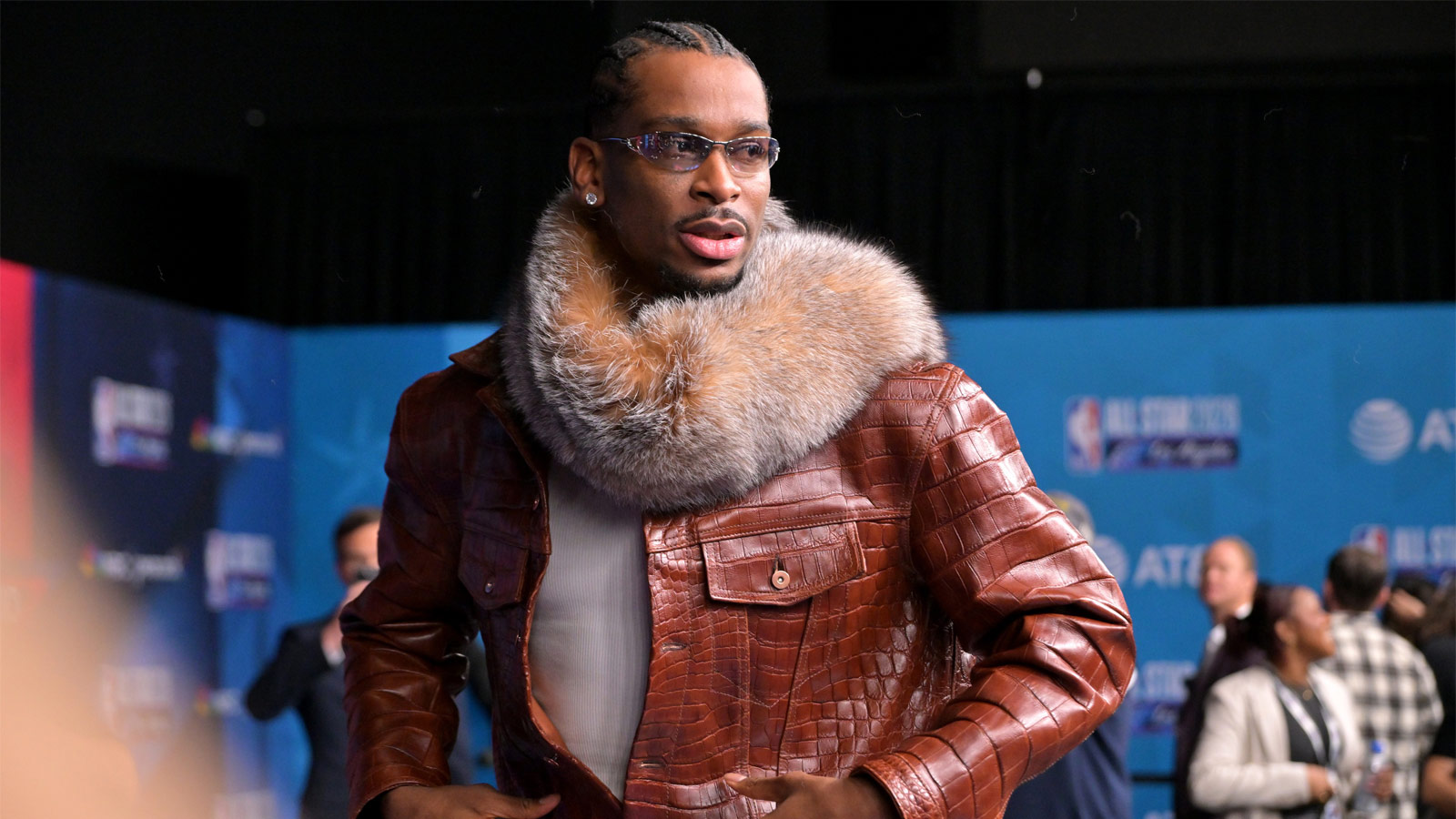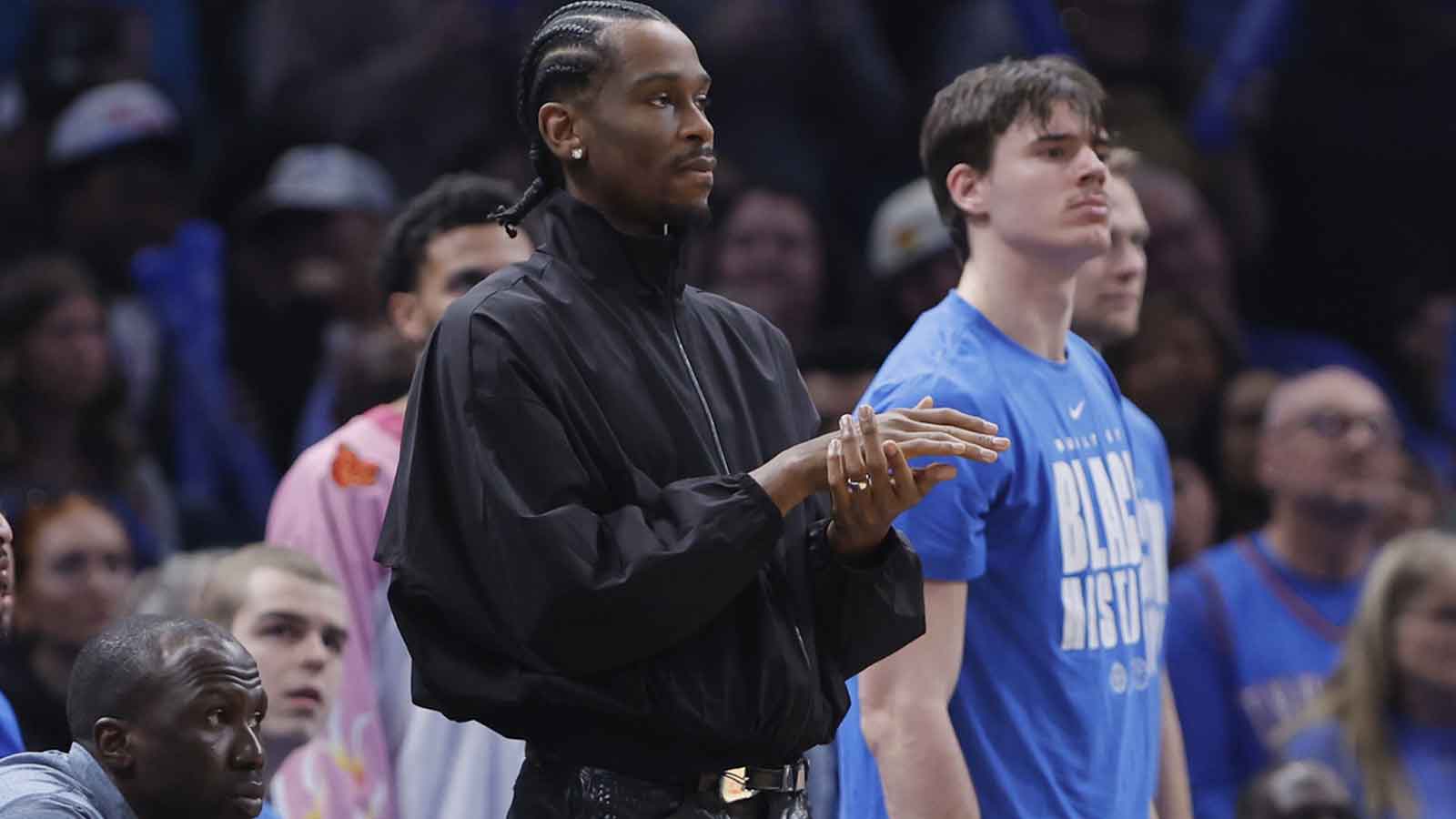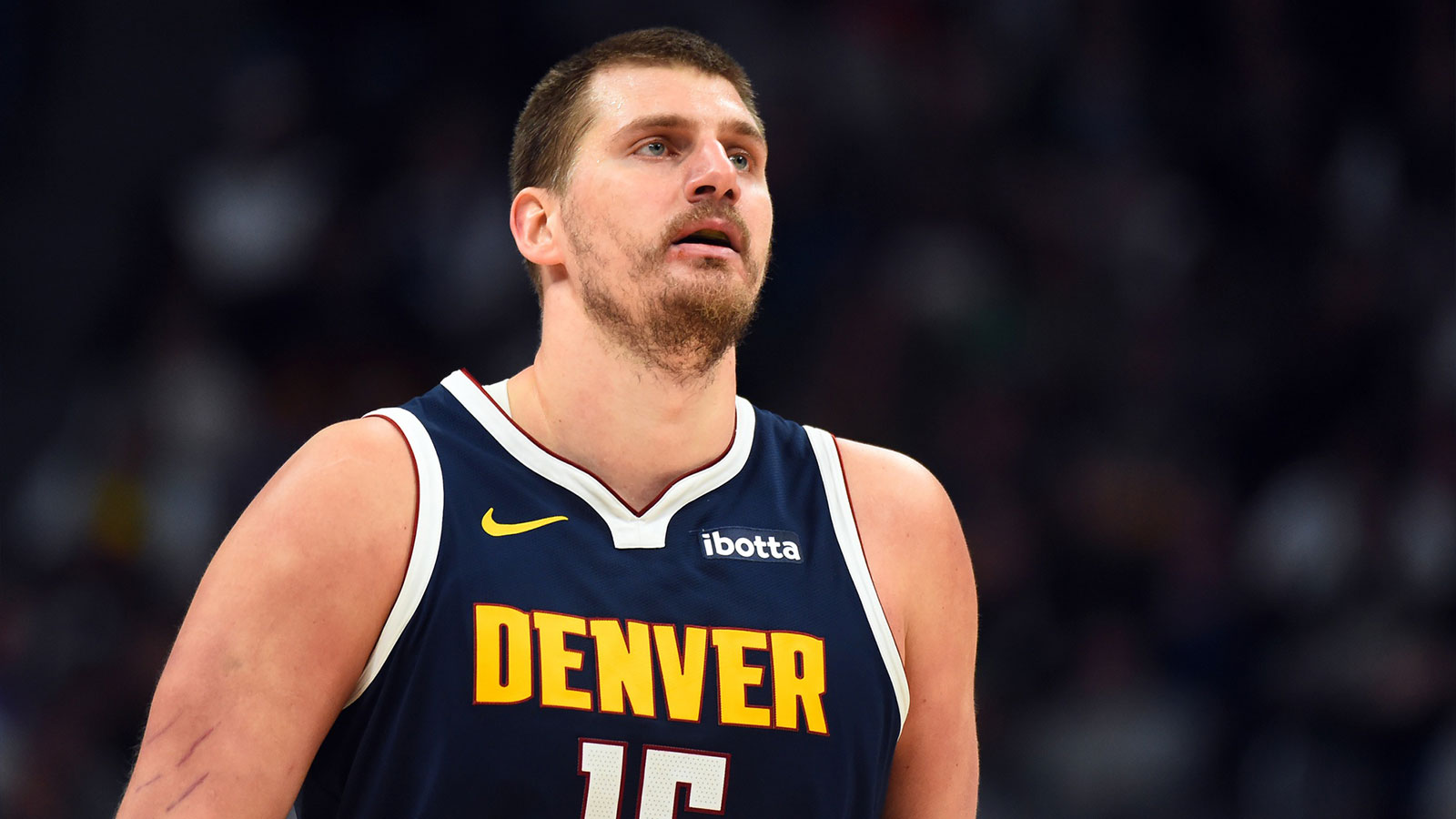The Denver Nuggets have been playing the long game, and for the most part, it’s working. Despite falling in the second round of the 2025 NBA Playoffs, the Nuggets pushed the eventual champions, the Oklahoma City Thunder, to a grueling seven-game series. Their exit didn’t mark a failure, but a moment of reflection for a franchise that has grown used to contending under Nikola Jokić’s brilliant leadership.
Under new head coach David Adelman, the Nuggets managed to reassert themselves this summer, fortifying their rotation and moving on from the bloated contract of Michael Porter Jr. by swapping him for Cam Johnson, a cleaner fit at a fraction of the cost. They also added veteran Jonas Valanciunas to shore up their long-suffering backup center rotation. They signed veterans like Bruce Brown Jr. and Tim Hardaway Jr. to bolster bench scoring and wing defense. However, one glaring issue still looms large over the Nuggets’ otherwise impressive offseason: the backup center spot remains a fragile gamble.
While Jonas Valanciunas is a capable veteran, he’s no long-term solution and may not be the defensive or stylistic fit Denver ultimately needs when Jokic rests. The Nuggets need a plan that ensures Jokic’s minutes are preserved during the regular season and that Denver can survive when their MVP sits in the playoffs.
Here’s why the Nuggets must still make one more move, and what options they have both internally and externally to solve their long-standing backup center problem finally.
DaRon Holmes II: The intriguing internal option for the Nuggets
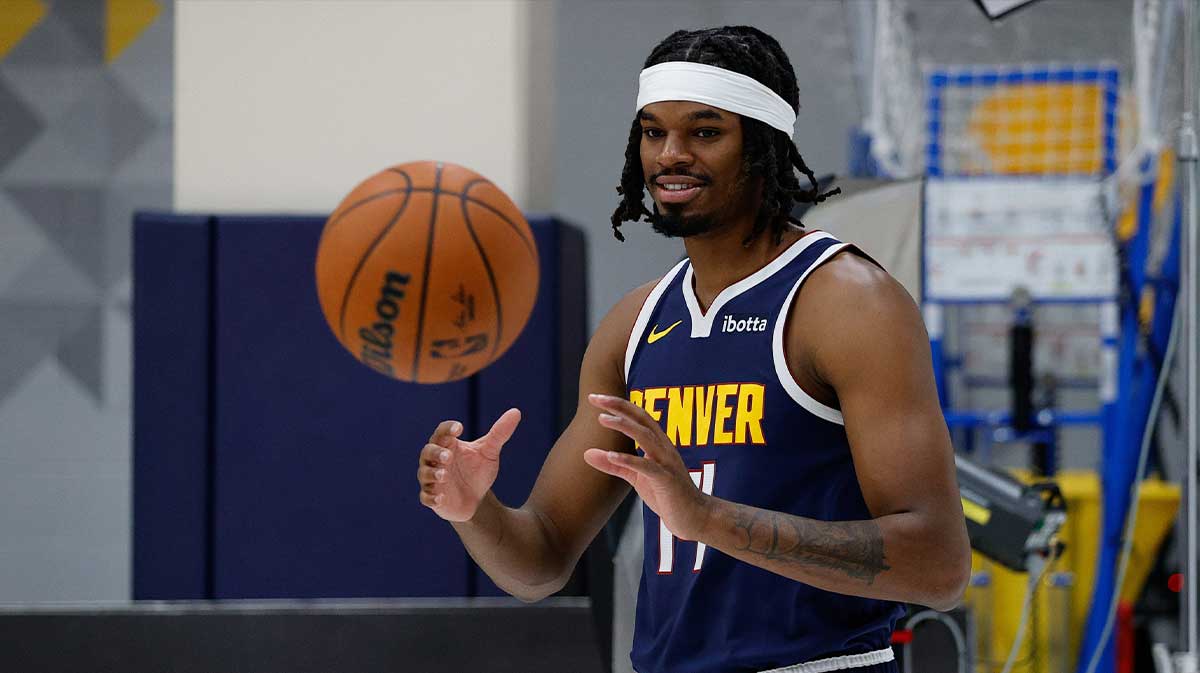
One solution might already be in-house: DaRon Holmes II, the 22nd pick in the 2024 NBA Draft, who spent most of last season developing behind the scenes.
Holmes’ Summer League play has already started to turn heads. The former Dayton star brings a compelling blend of mobility, vertical athleticism, and pick-and-pop potential that fits the mold of the modern NBA big. At 6'10” with a 7'1″ wingspan, he’s quick enough to defend in space and big enough to hold his own in the post.
Offensively, he brings something Denver’s backup bigs haven’t had for years: versatility. Holmes can roll hard to the rim, finish lobs, and even stretch the floor with a promising jumper. His college and G League tape shows flashes of a face-up game and the ability to make quick reads, traits that align well with Denver’s high-IQ, movement-heavy system.
The concern, of course, is experience. Can a second-year player take on backup center duties for a team with championship expectations? It’s a gamble, but if Adelman and the coaching staff can develop Holmes’ defensive discipline and rebounding instincts, he could provide high-upside minutes in short bursts. He doesn’t need to be Jokic-lite, he just needs to hold the line.
Upside Play: By investing in Holmes now, the Nuggets could develop a low-cost, two-way big who eventually takes over full-time backup duties and becomes a staple of Denver’s rotation. If he’s ready by February or March, the team could ease Valanciunas into a more specialized role and give Jokic more rest down the stretch.
Tyrell Harrison: The Wild Card from within
If Holmes is the upside pick, Tyrell Harrison is the wildcard, an unproven but physically imposing presence who could be exactly what Denver needs defensively.
Harrison, a 7-footer out of Australia, has been flying under the radar. But his performance in overseas leagues and workouts has turned some heads in Denver’s front office. He’s strong, moves well for his size, and shows a knack for protecting the rim without fouling. At 24 years old, he’s more mature than the average developmental project, and he plays with a chip on his shoulder.
What makes Harrison intriguing is his specialization. Unlike Holmes, who has a more well-rounded offensive game, Harrison is a pure interior defender and rebounder. He doesn’t demand touches. He’s happy setting screens, grabbing boards, and contesting shots. And frankly, that might be exactly what Denver needs in second-unit lineups that already have scoring in Brown, Hardaway Jr., or Christian Braun.
Fit Matters: Harrison’s no-frills game would mesh well with Denver’s second unit, especially in fast-paced, defensive-heavy stretches. While he may never crack the starting lineup or play 20 minutes a night, his presence alone could give Jokic the rest he needs without the Nuggets giving up easy baskets.
If nothing else, he deserves a serious look during preseason and training camp. The Nuggets have been burned before by relying too much on aging veterans with declining mobility. Harrison could be the antidote.
Day’Ron Sharpe: The external upgrade to lock it in
If Denver wants a surefire, cost-controlled, and ready-now backup center, the best external option might be Day’Ron Sharpe, the 23-year-old big man from the Brooklyn Nets.
Sharpe has quietly developed into one of the more effective per-minute rebounders in the league. Despite limited playing time behind Nic Claxton, Sharpe averaged 6.6 rebounds in just 18.1 minutes per game last season. He’s physical, strong on the glass, and sets monster screens that free up shooters.
Offensively, he’s not flashy, mostly dunks, offensive rebounds, and clean-ups. But defensively, he can bang with backup bigs, contest shots, and has shown improved footwork in drop coverage. He’s also under team control, likely available for minimal cost, and still developing.
go to work, @dayron_sharpe‼️ pic.twitter.com/GnsCuKRlwl
— Brooklyn Nets (@BrooklynNets) March 24, 2025
With Brooklyn clearly in a retooling phase, Sharpe could be had for a second-round pick or a fringe rotation player like Zeke Nnaji. Given Denver’s cap constraints and their desire to stay under the tax, adding Sharpe on a rookie-scale deal would be both pragmatic and impactful.
Why Sharpe?
-
He immediately upgrades Denver’s rebounding.
-
He protects Jokic from overuse.
-
He can play 12–15 minutes every night and step in for short playoff stints without disrupting the team’s rhythm.
Although he may not stretch the floor like Holmes or have Harrison’s defensive instincts, Sharpe offers the best combination of readiness, cost-efficiency, and fit.
The persistent problem: Jokic has no true backup
Let’s call it what it is: the Nuggets have not had a reliable backup center since Mason Plumlee departed in 2020.
The impact is twofold:
-
Jokic’s minutes skyrocket during key stretches, wearing him down over the course of the regular season and leaving him visibly fatigued in playoff battles.
-
The bench units crater, particularly on defense and glass. The drop-off between Jokic and his backups has been among the widest in the league over the past three seasons.
Yes, the signing of Jonas Valanciunas offers temporary relief. He’s big, strong, and can score on the block. But he’s not a modern switchable big, and at this stage in his career, he’s unlikely to anchor a fast-paced, defensive-oriented second unit. Denver needs to start looking beyond the 2025-26 season and develop or acquire someone who can contribute both now and in the future.
The front office has done well this offseason, trading MPJ for Cam Johnson was both financially savvy and tactically smart. Adding Bruce Brown Jr. restores some defensive identity, and Tim Hardaway Jr. provides a scoring punch. But none of it will matter in May or June if Jokic is once again dragging a tired body through 40+ minute playoff games.
That’s why one final move is essential.
One final move to secure a title window
The Nuggets have done an excellent job rebuilding around their MVP without compromising their championship timeline.
-
Cam Johnson provides spacing and off-ball movement.
-
Bruce Brown Jr. brings back perimeter defense and versatility.
-
Tim Hardaway Jr. offers bench scoring and playoff toughness.
-
Jonas Valanciunas solves a glaring hole, at least temporarily.
But the Jokic over-reliance problem remains. No matter how elite Jokic is, Denver needs a plan that gives him room to breathe without the floor falling out beneath them.
The Nuggets have three legitimate paths to solving this once and for all:
-
Promote DaRon Holmes II and trust his development.
-
Give Tyrell Harrison real reps and embrace a defense-first second unit.
-
Trade for Day’Ron Sharpe, a proven glass-eater who can stabilize lineups now and grow into a long-term role.
No option is perfect, but any of the three would mark a significant upgrade over Denver’s recent history of short-term bandages.
If they act now, the Nuggets can enter the 2025-26 season with a complete roster, a fresh head coach, and a rested MVP, all geared for one more deep playoff run.

